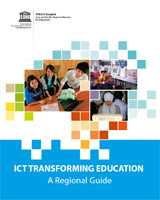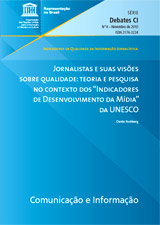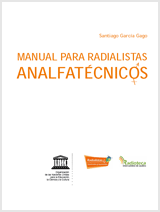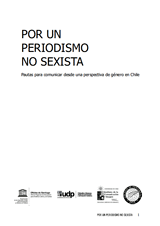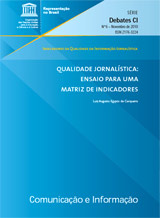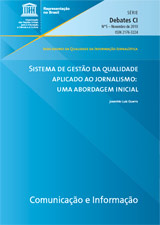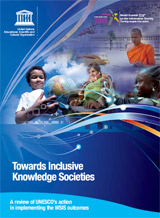UNESCO supported the Commonwealth Broadcasting Association’s initiative to publish an updated version of the Editorial Guidelines, which are designed to help broadcasters identify and adopt good practices that ensure sound coverage by the media that operate freely and fairly.
Date de publication: 2010
This Regional Guide grew out of a series of meetings of ICT experts convened by UNESCO’s Asia and Pacific Regional Bureau for Education to explore pedagogy-technology integration. An outcome of these meetings was the publication of Regional Guidelines on Teacher Development for Pedagogy-Technology Integration (Working Draft) in 2005 under the editorship of Shyamal Majumdar.
Date de publication: 2010
Media quality indicators: policies, standards and concerns of Brazilian magazines and newspapers is part of the Communication and Information Debates series, produced by UNESCO’s Brasilia Office. The output of a study developed in cooperation with the Brazilian National Net of Press Observatories (Renoi), this title stresses the need for quality indicators for Brazilian media companies.
Date de publication: 2010
Journalists and their vision on quality: theory and research in the context of UNESCO’ Media Development Indicators is part of the Communication and Information Debates series, produced by UNESCO’s Brasilia Office. The output of a study developed in cooperation with the Brazilian National Net of Press Observatories (Renoi), this title stresses the need for quality indicators for Brazilian media companies.
Date de publication: 2010
Published by UNESCO’s Office in Quito, this comic book illustrates the main principles and concepts of freedom of expression and press freedom in an accessible, easy-to-understand language.
Date de publication: 2010
The Manual for ICT illiterate radio practitioners, edited by Santiago Gago and published jointly by UNESCO, Radialistas Apasionadas y Apasionados, and Radioteca Intercambio de Audios (Radioteca.net), is conceived as a simple and effective tool to assist community radio professionals to master the technological aspects of radio broadcasting.
Date de publication: 2010
This book presents an overview of case studies on media and good governance. It contains articles by intellectuals and journalists from eight African countries: Benin, Burundi, Cameroun, Côte d'Ivoire, Gabon, Mali, Senegal and Togo.
Date de publication: 2010
Prepared by UNESCO’s Office in Santiago in cooperation with its partners, Toward non-sexist journalism: guidelines for communicating from a gender perspective in Chile is a response to the need to generate thought about journalism’s responsibility. The publication aims to raise awareness about gender perspective and to promote more inclusive journalism.
Date de publication: 2010
Quality journalism: an essay on a matrix of indicators is part of the Communication and Information Debates series, produced by UNESCO’s Brasilia Office. The output of a study developed in cooperation with the Brazilian National Net of Press Observatories (Renoi), this title stresses the need for quality indicators for Brazilian media companies.
Date de publication: 2010
Quality management systems applied to journalism: an initial approach is part of the Communication and Information Debates series, produced by UNESCO’s Brasilia Office. The output of a study developed in cooperation with the Brazilian National Net of Press Observatories (Renoi), this title stresses the need for quality indicators for Brazilian media companies.
Date de publication: 2010
An initial survey of the needs and opportunities for professional training and qualification in the Padre Anchieta Foundation and Brazil Communications Company focuses on strengthening public broadcasting companies through professional qualification.
Date de publication: 2010
Le présent rapport fait le bilan de l’action de l’UNESCO dans ces domaines de mise en œuvre durant les cinq années écoulées depuis la phase de Tunis du Sommet mondial en 2005. Il récapitule certains des résultats les plus positifs obtenus à ce jour, et réfléchit aux problèmes rencontrés dans la mise en œuvre du SMSI.
Date de publication: 2010







